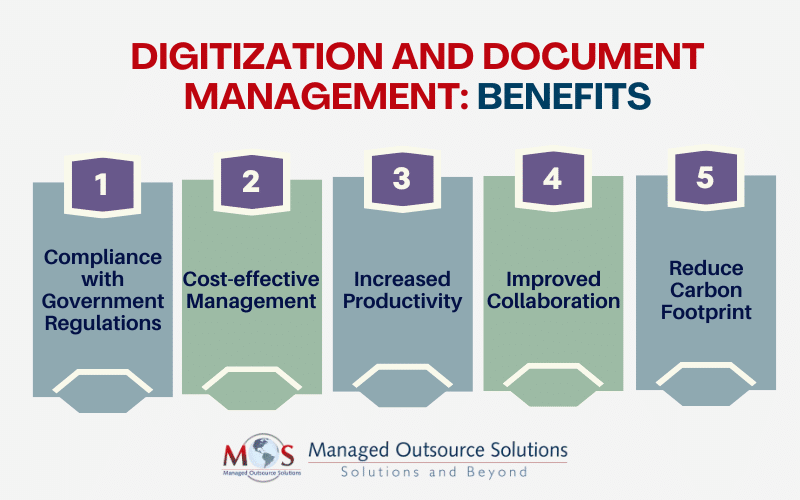The nonprofit sector is growing, driven by people who are dedicated to making a difference in their communities. Nonprofits typically function on very thin budgets, and depend mostly on government and charity funding for their activities. Like other organizations, they need to maintain detailed records for tax purposes, to ensure transparency for stakeholders, and to meet regulatory compliance. However, even in this digital age, many nonprofits continue to struggle with large volumes of paper files, making document management a major challenge. Leveraging document conversion services can help address these issues by reducing paper use and streamlining record retention. Once the files are scanned and digitized, nonprofits can implement efficient document management systems to improve their workflow.
Key Document Management Challenges for Nonprofits
Storing, handling, and keeping paper records is a challenge for two reasons.
First, the Paper deluge hinders information retrieval. Many non-profits continue to store paper documents, making it difficult to retrieve information when needed. Unsearchable documents lead to a significant loss of time and effort for staff, making it difficult to deal with the requirements of governmental organizations, judicial systems, and other institutions.
Next, paper files involve lengthy processing times. Paper-based documentation not only takes up valuable storage space but also take time to process. They make daily case management difficult and costly, affecting operational efficiency.
Nonprofit organizations have defined goals and objectives to meet, for which accurate data is necessary. When their documents are not properly organized, they will not have access to structured data that is vital for functioning. Implementing a proper document management system can help overcome these challenges.
Document Scanning – Streamline File Management
Given the importance of streamlined business data, nonprofit organizations should adopt an efficient document management policy wherein all documents are scanned and digitized. Partnering with a reliable document conversion company can ensure budget-friendly bulk document scanning services.
Records management means deciding what to keep and how long to keep it. Wyoming state archives recommends that nonprofits retain and store the following:
- Constitution, bylaws, articles of incorporation
- Photographs of events
- Meeting minutes
- Annual reports
- Media publicity
- Financial Reports/Audits
They can consider discarding duplicate copies, superseded blank forms, and anything not relevant or related to the organization.
Once the documents are all digitized, they can be safely stored in the computer database. In fact, security is a crucial element to consider when implementing digitized solutions. Nonprofits often handle sensitive information, such as financial and banking details from donations, personally identifiable information, government contracts, and other content. Misplaced documents pose risk of confidentiality breaches. For nonprofits, data breaches phishing and ransomware threats pose major security/privacy risks. So, it’s crucial to implement a document management system with robust security features.
Advantages of Digitization and Efficient Document Management
- Meet government regulations: Nonprofit organizations have to follow many government rules and regulations in order to avoid penalties. With digitization of all important records, the documents can be arranged systematically, fostering compliance with government regulations and standards.
- Manage with a small budget: Nonprofits have limited budget and have to meet all their needs within that limited budget. With digitization of financial records, they can monitor and manage their accounts better. This also supports auditing.
- Increased productivity: Digitization of all valuable documents enables quick access to files and minimizes time that social workers spend searching for information. This improves efficiency and workflow.
- Improved collaboration: Remote work is increasing among nonprofits. They need effective solutions to store, access, and share information to facilitate communication. Digitizing documents empowers them to manage them effectively and allows authorized users, groups, and roles to remotely access to documents.
- Reduce carbon footprint: Going digital means going green. Reducing the physical storage space required for paper documents reduces the need for physical office space and related energy consumption. Scanning documents results in digital assets that are easily accessible, searchable and manageable, enabling remote access and greater efficiency.
Partnering with a competent document scanning company can ease the digital transformation process for nonprofits. Expert support can go a long way to improve data management and security, enhancing collaboration and helping nonprofits stay relevant in a rapidly changing world. Reliable companies offer bulk document scanning solutions at affordable rates.
Take the first step towards efficient, compliant document management.





